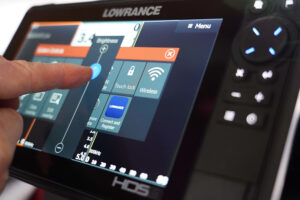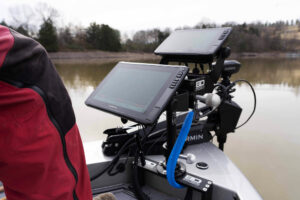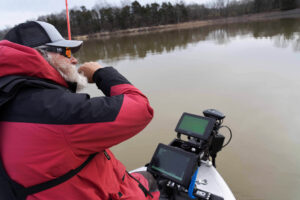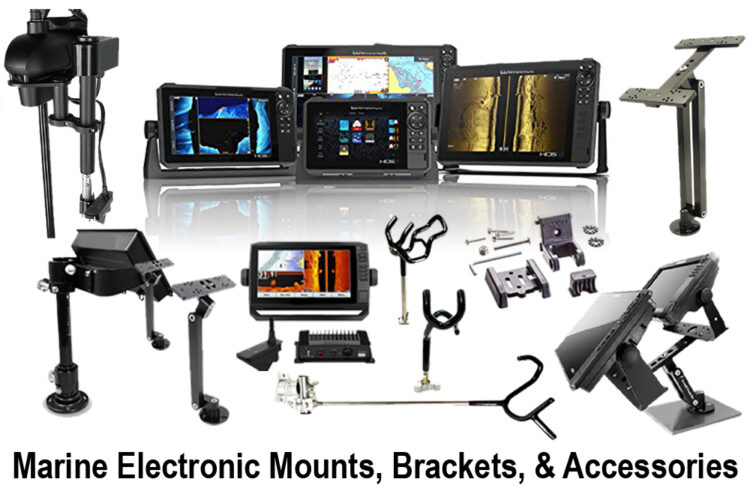Can You See Your Sonar/GPS Screen?
by Brad Wiegmann

Every angler sooner or later will look at their sonar/GPS unit and not be able to see an image. It could be a blacked-out screen from sunlight glare or just the angle of the fish making it impossible to see. Lucky for anglers there are things you can do to eliminate this issue.
Everyone wants to talk about pixels when getting a sonar/GPS unit, however, the nits rating is what counts when it comes to how bright your screen will be when turned on. Nits is a unit that measures brightness in terms of one area produced by a single candle. The higher the number, the easier it is to see at night or even during the day.
Our viewing experience of a graph is based on seeing the screen without turning your head or adjusting the angle of the unit. In general higher-priced sonar/GPS units have higher nits ratings.
Here’s a look at some popular sonar/GPS units. Most units are above 1,000, but Lowrance goes one step farther with SolarMAX HD IPS Touchscreen.
Lowrance HDS LIVE 1,200 nits
Viewing angle degree 80 top, bottom, right & left plus SolarMAX HD IPS Touchscreen technology (Since 2016)
Humminbird Solix 1,500 nits, Helix 1,500 nits
Garmin 943XSV 1,200 nits, viewing angle 88 top, bottom, left or right
Raymarine Element 1,500 nits

Anglers have several options to eliminate glare. First, turn the unit’s brightness to 100%. While this will work in some situations it also means that you will be increasing the power demand on your battery and reducing battery life. The second is to purchase aftermarket sonar/GPS sun visors or shades like the ones sold by Tacklevillage.com. These optional products are normally designed to fit a certain model and brand.
Another option I don’t personally like is using a glass coating solution like DCP TS2 Glass Coating solution that will aid in glare reduction or clarity; in addition to being extremely hydrophobic allowing rain or water droplets to run off the screen. Note this chemical is only for sonar/GPS units with glass screens.
For anyone on a budget, a simple DIY sun visor can be made out of several materials. Wood or a cutting mat would work, however, the most popular ones are made from black Kydex sheets, using a heat gun and Velcro adhesive strips to attach the DIY sun visor to the sonar/GPS unit.

Surprisingly even the sunglasses you are wearing can make it so you can’t see the sonar/GPS screen on marine electronics. The reason why is most marine electronic devices have a polarizing film designed to reduce the glare on the screen making the image dark to where you can’t see it. LightPro makes sunglasses that eliminate this issue allowing an angler to see the image on the unit with revolutionary polarized sunglasses lenses.
(From Springdale, Arkansas, Brad Wiegmann is a professional photographer, videographer, and outdoor writer published in dozens of print and electronic media outlets all across the nation. He is also a well-known guide, podcaster, and social media influencer. Learn more about Wiegmann and his lengthy experience and expertise at BradWiegmann.com.)



